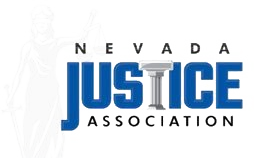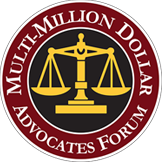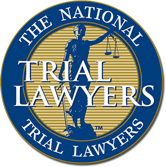- July 29 2024
- | Personal Injury
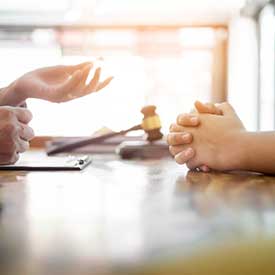
Slip-and-fall accidents can happen anywhere, but when they occur on rental properties, there is a question of liability. Imagine you’re a tenant in an apartment building somewhere in Nevada, and one rainy afternoon, as you’re heading out to run errands, you slip on a wet, slippery staircase, breaking your ankle. This particular staircase had been reported to the landlord several times for its lack of proper drainage, which made it dangerously slick in wet conditions. Despite these warnings, the landlord had taken no action to remedy the situation. This is a clear case of negligence, and your landlord should be held responsible for your incurred damages.
Filing a personal injury claim against your lawyer might seem straightforward, but it is not. Some intricate procedures and requirements require the help of legal counsel. After a slip-and-fall accident, you need to know if you can hold your landlord responsible for your accident. There are also other things you need to take into consideration. The insurance company involved may act in bad faith. However, our personal injury attorney from Leverty & Associates Law can help you. Contact us if you or your loved one has sustained a slip-and-fall injury in your rental apartment; we will help.
Why hire personal injury lawyers from Leverty & Associates Law
At Leverty & Associates Law, we have well-experienced and highly skilled lawyers that you can depend on. Our attorneys are highly knowledgeable in personal injury law, so we can help you and make sure the legal process runs smoothly, even if the insurer involved acts in bad faith. With the knowledge we have gained over the years, we have helped many tenants after their slip-and-fall injuries caused by negligent landlords; we can help you, too.
We will prioritize your case and ensure your negligent landlord compensates you for the damages you suffered
We understand the financial burdens and worries that come with this type of slip-and-fall injury, and that is why we will work tirelessly to help you get compensation for the injuries and other damages you incurred after the slip-and-fall accident. If you need a team of dependable personal injury lawyers to help and support you, we are only a call away. Contact us in Reno at (775) 322-6636; we offer free initial consultations.
When is your landlord legally responsible for your slip-and-fall injury?
In any personal injury claim, including slip-and-fall cases, the injured party must show that the person responsible was negligent. When you sustain a slip-and-fall injury in your apartment, you need to prove that your landlord was negligent. You must show that:
- Your landlord had a duty to take specific actions (or refrain from certain actions) to ensure the property’s safety. While specific legal responsibilities of landlords vary by state and local law, they consistently include the obligation to perform maintenance and repairs to keep rental properties safe and habitable for tenants.
- Your landlord can be said to have acted negligently if they failed to fulfill one of the legal responsibilities stipulated by the law that governs the state.
- If the failure to adhere to the rules directly resulted in your falling and getting injured, then you can say your landlord was negligent.
It’s important to note that landlords are not expected or required to keep their properties entirely free of hazards. The critical factor is whether your landlord knew about or should have known about the hazardous condition. If your landlord was aware, the court will examine whether the landlord took reasonable steps to protect people and eliminate the danger. In essence, the focus is on whether the landlord’s actions and decisions were reasonable given the circumstances.
Can you hold your landlord responsible if you sustain a slip-and-fall injury inside or outside your apartment (in common areas)?
Imagine you’re living in a rental apartment where there is a leaking roof inside your unit for several weeks. One day, as you’re walking, you slip, fall, and injure yourself. In this situation, the question of your landlord’s liability would be evaluated based on whether they knew or should have known about the hazardous condition and failed to act.
If the landlord was aware of the leaking roof and had enough time to repair it but neglected to do so, they could be held liable for your injuries. Their inaction in the face of a known danger would be considered negligence.
On the other hand, if the roof had just started leaking and your landlord had not been informed about the issue, they might not be found negligent. In this scenario, without prior knowledge of the defect, your landlord would not have had the opportunity to make the necessary repairs.
As the injured party, your behavior will also be checked to determine liability. Did you take reasonable precautions once you became aware of the leak? If you notice a hazardous condition in your rental property, you should promptly notify your landlord and take reasonable steps to protect yourself. Depending on how severe the issue is, you might address the problem yourself if it’s minor and manageable, avoid the area until the landlord resolves the issue, or temporarily leave your home if the danger is significant.
If the landlord fails to act quickly on a serious issue, you can consult our attorneys; we will ensure you take the right steps in order to avoid a denied claim for your compensation.
If you sustained a slip-and-fall injury in other parts of the property, such as a loose floorboard on the staircase leading to your door, the setting might vary. However, the principles determining your landlord’s potential liability are similar to those for accidents inside your rental unit. First, it’s essential to establish whether your landlord was responsible for maintaining and repairing the area where the incident occurred. You need to consider the following key points:
- General Responsibility: Landlords typically have a legal duty to ensure that common areas of their rental properties are safe. This includes tasks like repairing cracked and uneven pavement and ensuring that front steps are sturdy and level.
- Lease Agreements: In some instances, your lease may stipulate that you are responsible for certain maintenance tasks.
Also, determining liability involves assessing whether your injuries resulted from your landlord’s failure to fulfill their responsibilities. Consider a scenario where you fall on the stairs in your apartment building’s common area. The landlord’s liability would depend on whether they were notified of the situation but ignored it or whether it was an unforeseen hazard that they couldn’t be expected to know about instantly. Understanding these situations is essential in determining whether a landlord is liable for slip-and-fall accidents in common areas or inside rental properties.
Have you sustained a slip-and-fall injury in your rented apartment? Get help from Leverty & Associates Law
At Leverty & Associates Law, we have more than fifty years of experience and knowledge of personal injury law. This knowledge has helped us work well for our clients. We will also commit our skills and expertise to helping you make sure that after you file your claim, the insurers don’t act in bad faith and you get your due compensation. If you need a team of attorneys to help, contact us in Reno at (775) 322-6636 (Reno) for a free consultation.


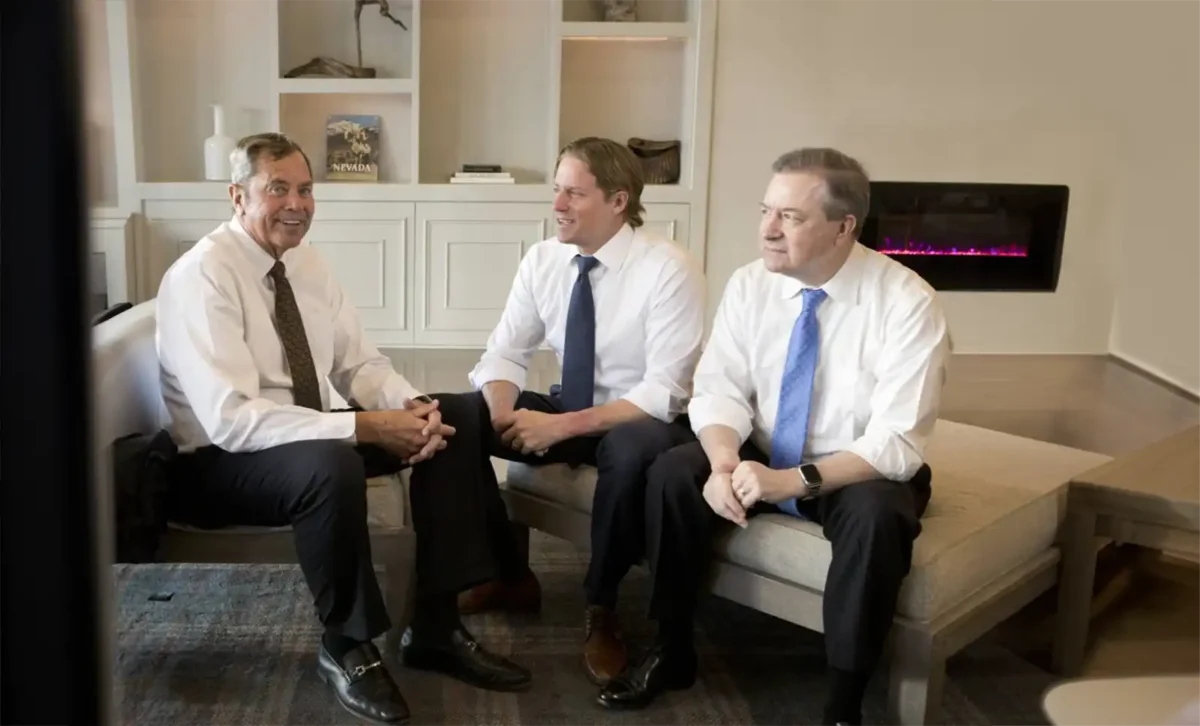
 With his master’s in insurance law, Patrick routinely helps individuals and businesses who are having issues with their insurance company. He also has extensive experience with personal injury actions, complex tort actions, product liability matters, and class actions. Patrick Leverty is rated AV by Martindale Hubbell (the highest rating) and has been granted membership in the Million Dollar Advocate Forum, and Multi-Million Dollar Advocate Forum. Patrick Leverty has been certified as a Personal Injury Specialist by the State Bar of Nevada. [
With his master’s in insurance law, Patrick routinely helps individuals and businesses who are having issues with their insurance company. He also has extensive experience with personal injury actions, complex tort actions, product liability matters, and class actions. Patrick Leverty is rated AV by Martindale Hubbell (the highest rating) and has been granted membership in the Million Dollar Advocate Forum, and Multi-Million Dollar Advocate Forum. Patrick Leverty has been certified as a Personal Injury Specialist by the State Bar of Nevada. [ 